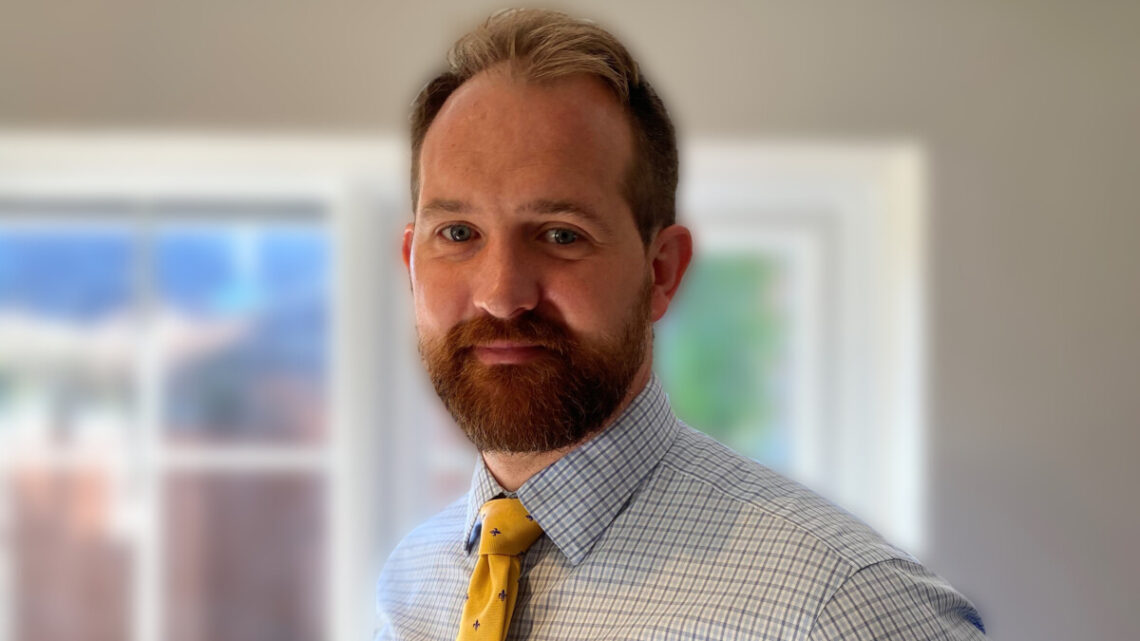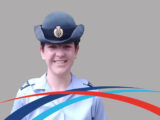
Civvy Life – Aaron Waters
Not all Service-leavers have a defined post-Forces plan. After a couple of false starts, Aaron Waters has found his place in utilities company, UK Power Networks.
What’s your Military background?
I joined the Royal Air Force Regiment, II Squadron in 2002 which is the parachute field squadron. I did tours in Iraq and Afghanistan and left midway through 2006.
How was resettlement?
Very, very brief.
I think I got handed a pack of stuff – and I also went to what was almost like a public services exhibition; so, there was someone from the fire service there, someone from the police, someone from the prison service… I got accepted into the prison service college.
There was no aspiration to be a prison officer or anything like that but I ended up in the prison service for eight years. I went into it because I wasn’t too sure what to do when I left (the Military). You know you don’t want to be in the Military anymore but you kind of want something that is a bit similar, or you think you do.
How did you get involved with utilities and UK Power Networks?
I was playing rugby for the prison service and I played down in Aldershot, against the Army and there were a couple of career things going on down there. One of the guys I was playing rugby with mentioned UK Power Networks. I spoke to a couple of people who worked for UK Power Networks as well and they were just fantastic. What amazed me was the different roles and responsibilities you can have within the business – and the development side of what they do and what they put into their staff – that was another big selling point for me.
When I spoke to one of my friends at the time who was working (in a similar role) he explained the job to me. He was out and about and meeting people. It was massively diverse and something different to what I was doing at the time. I liked the idea of being out and about and I liked the idea of working in large scale construction.
I work in the Capital Programme directorate of UK Power Networks and they deliver major infrastructure projects. I liked the idea of that; timeframes and project delivery.
Have you had opportunities to develop within your role?
I have been very fortunate in that regard. With UK Power Networks I’ve managed to do a diploma in surveying practice, an honours degree in real estate management, all of which UK Power Networks. have sponsored me through.
What does your current role cover?
My current role in UK Power Networks is as the major projects consents manager. I’m a qualified chartered surveyor, following that development from the business, which they’ve effectively paid for and supported me on. I manage a team of 10 of the surveyors who cover a large, diverse portfolio within capital programme.
I’m lucky enough to have been able to get to that kind of position because of the support in the development UK Power Networks have given me. It’s a fantastic firm to work for; there’s a lot of firms that talk a good game, but there’s not many that actually deliver.
UK Power Networks regularly showcase their Armed Forces Covenant accreditation. What’s their general perspective regarding Veterans?
There’s recognition of the transferable skills, and I don’t necessarily mean academia, I mean, simple day-to-day skills, working within a team, recognising a hierarchy and working within different directorates. Military personnel understand that very well, because you realise quite quickly in the Military that you are a small cog in a big machine – and that you also have to know what the cog next to you does and how it interlinks. UK Power Networks are very similar and rather than try to take somebody from the Military and shoehorn them into a position, they look at the person to see what skills they’ve got and how they can best be used.
Do you find yourself referring to some of those Military acquired skills and attributes in your role?
My role is to do with hierarchy of escalation if it’s needed. So, when things go wrong in the Military, you wouldn’t necessarily go to the Squadron Leader if you’ve got an issue. UK Power Networks is similar. There are methods and structures that you need to go through but at the same time, everyone has a voice, so it’s an open forum where you can have your say, and people listen.
Communication’s another big one and understanding the importance of teamwork. When you work for a team and you know the person next to you understands what you do and what they do and that you have a shared goal, that’s when teams really start to function well.
Given what you missed out on in terms of resettlement, what’s your best advice for current Service-leavers?
You have to research the business that you’re going into. I probably took the easy way and went for something that was kind of similar (to the Military). If you’re looking to go to a bigger business, make sure that they actually practice what they preach. Understand that the environment you’re going into is going to be different, but if you’re working for a firm or a business that understands that as well, then that’s half the battle.
Also don’t underestimate the skill set that Military personnel have. It doesn’t necessarily have to be in academia, you don’t have to have every qualification under the sun.
Visit: www.ukpowernetworks.co.uk


